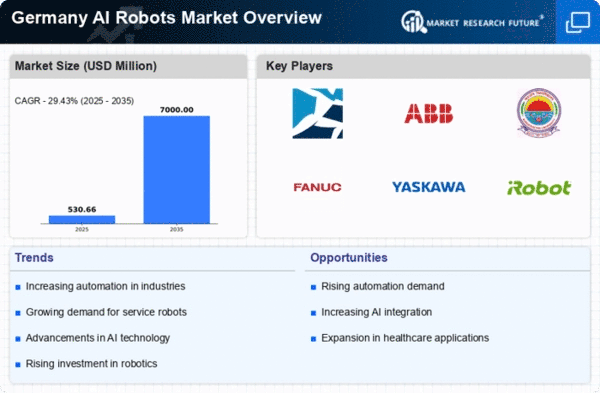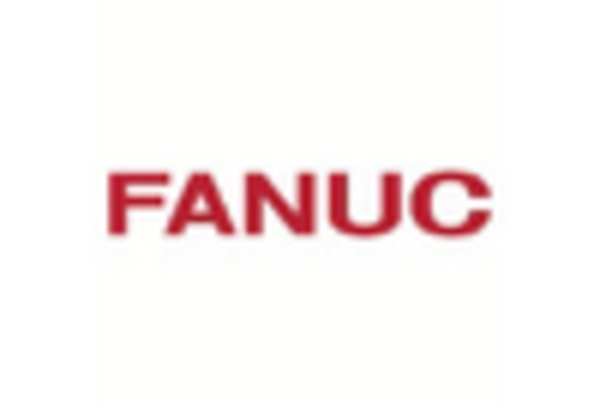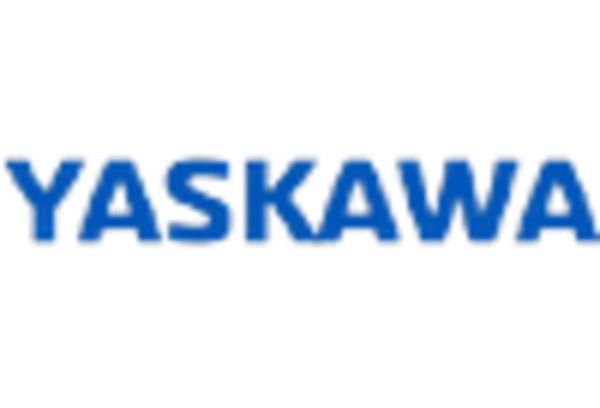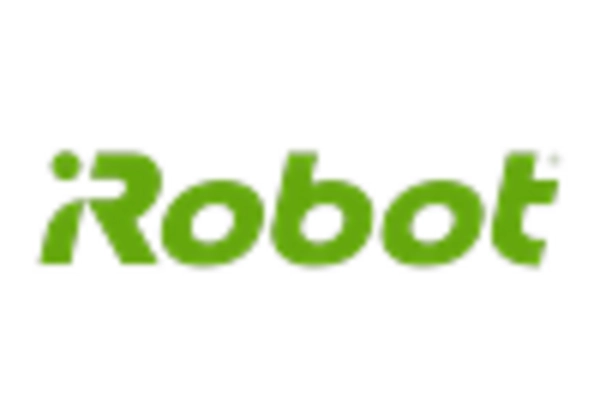Rising Labor Costs
The ai robots market in Germany is experiencing a notable surge due to rising labor costs. As companies face increasing wage demands, particularly in manufacturing and logistics, the adoption of ai robots appears to be a viable solution. These robots can perform repetitive tasks with high efficiency, potentially reducing the need for a large workforce. In 2025, labor costs in Germany are projected to rise by approximately 3.5%, prompting businesses to seek automation solutions. The ai robots market is thus likely to benefit from this trend, as organizations aim to maintain profitability while managing operational expenses.
Growing E-commerce Sector
The rapid growth of the e-commerce sector in Germany is significantly influencing the ai robots market. As online shopping continues to expand, logistics and warehousing operations are under pressure to enhance efficiency and speed. In 2025, the e-commerce market in Germany is projected to reach €100 billion, leading to increased investments in automation technologies. The ai robots market is poised to capitalize on this trend, as companies seek to implement robotic solutions for inventory management, order fulfillment, and delivery processes. This shift towards automation in e-commerce logistics is likely to drive substantial growth in the ai robots market.
Technological Advancements
Technological advancements play a crucial role in the growth of the ai robots market in Germany. Innovations in artificial intelligence, machine learning, and robotics are enabling the development of more sophisticated and capable robots. In 2025, the market is expected to witness a growth rate of around 15% annually, driven by these advancements. Companies are increasingly investing in research and development to enhance robot functionalities, making them more adaptable to various industries. This trend indicates a strong future for the ai robots market, as businesses leverage cutting-edge technology to improve efficiency and productivity.
Government Initiatives and Funding
Government initiatives and funding are significantly impacting the ai robots market in Germany. The German government has launched several programs aimed at promoting automation and digitalization across industries. In 2025, public funding for robotics and automation projects is expected to exceed €500 million, fostering innovation and encouraging companies to adopt ai robots. This support not only enhances the capabilities of the ai robots market but also positions Germany as a leader in robotics technology. The collaboration between public and private sectors is likely to accelerate the integration of ai robots into various applications.
Increased Demand for Precision and Quality
The demand for precision and quality in production processes is driving the ai robots market in Germany. Industries such as automotive and electronics are increasingly relying on robots to achieve higher standards of accuracy and consistency. In 2025, it is estimated that 60% of manufacturing companies will incorporate ai robots to enhance product quality. This trend suggests that the ai robots market is well-positioned to meet the evolving needs of manufacturers seeking to improve operational efficiency while maintaining high-quality outputs. The integration of ai robots is likely to become a standard practice in these sectors.
















